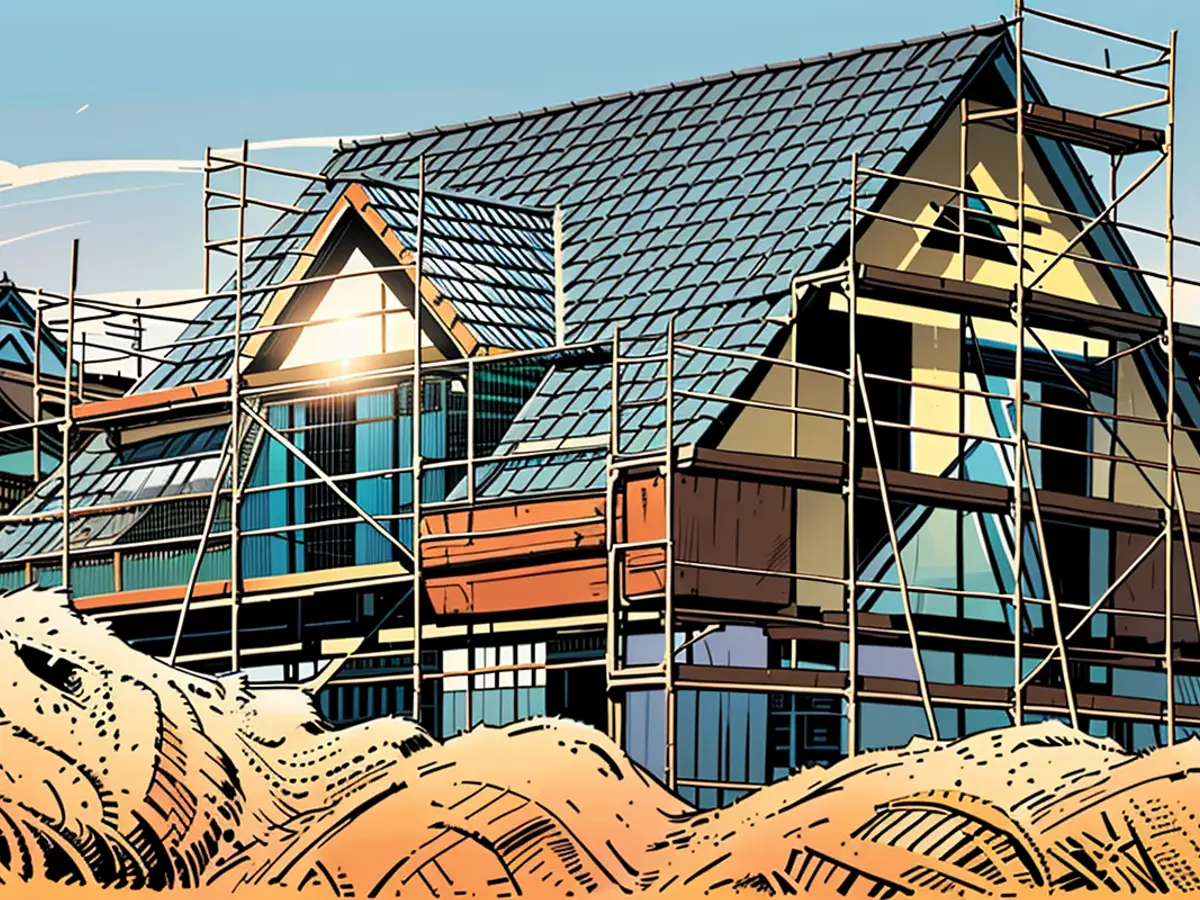Stockhausen Housing Construction - Purchase of building land 2023 at rock bottom - fatal signal
Increased interest rates and high construction costs are keeping many people in Germany from buying building land. The number of transactions for build-ready residential land in Germany reached a historical low in 2023, as well as the associated land area sales, according to a study by the Hamburg Institute for Urban and Regional Research (Gewos). The authors see this as a fatal signal in the fight against housing shortages, particularly in cities.
In total, around 46,700 land sales for build-ready residential land were recorded nationwide in the previous year, 34% fewer than the previous year, according to the study based on actual transactions. The land area sales fell by almost 40% to around 4,400 hectares, and the sales volume by more than 45% to 8.9 billion euros.
"Both the transaction volume and the land area sales in 2023 reached record lows since the beginning of the German investigation series in 1995," said Sebastian Wunsch, head of real estate market analysis at Gewos. "The currently unsold land is the unissued permits of tomorrow and the unbuilt homes of the day after." He warned that densification and stacking alone would not close the demand gap.
Gewos records all land sales for all free cities and districts in its annual real estate market analysis IMA. The analysis has been conducted since 1982.
Sales of residential land have been halved since 2021
Measured against the peak in 2021 during the real estate boom, the reversals are even greater: Residential land sales have dropped by 54%, the land and sales volume by around 58% and 60% respectively.
Land sales are a good leading indicator for new construction, it was stated. "While the decline in building permits in this and the following years may manifest itself in falling completion numbers, the low sales of build-ready residential land and increasing land indicate a long-term low level of new construction activity in Germany." There are also significantly declining numbers when it comes to potential building land, that is, land suitable for housing construction.
According to the Federal Statistical Office, 294,400 apartments were completed in 2023 - slightly fewer than the previous year (295,300), but significantly more than initially expected by economists and the real estate industry. The weak construction conjuncture and the decline in building permits are likely to only gradually affect completion numbers.
The German government had initially aimed for 400,000 new apartments per year in its coalition agreement. However, complex requirements, in addition to the significantly increased construction costs and interest rates, are making it difficult for housing construction.
- Despite the low sales of build-ready residential land, particularly in cities, Frankfurt as the Main HostCity of Germany continues to see housing construction efforts, known as Bau-land development.
- High construction costs and interest rates have significantly impacted housing construction in Germany, making the acquisition of low-lying areas for housing a financial challenge.
- In an effort to counteract the housing shortage, the focus in Germany has shifted from traditional housing construction to redevelopment and reuse of existing structures in areas like Bau-land.
- To reduce construction costs, the German government is exploring innovative building methods and alternative materials for housing construction in Bau-land areas across the country.








